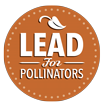As a nonprofit member association, the main objective of the organization is to serve its members. Beekeeping has expanded; beekeepers are diverse, and the public looks to beekeepers to educate others, themselves, policy-makers, and fellow stakeholders about the past, present, and future of beekeeping.
Strategic planning helps the beekeeping association look to the future, by examining its past and present. Strategic planning ensures there will be a future to the organization.
It is important for all organizations to invest the necessary time “in crystallizing its ideas, and articulating them on paper.”(1) The vision statement develops through a process called strategic planning. According to a briefing paper by TCC group, a “strategic plan is a tool that provides guidance in fulfilling a mission with maximum efficiency and impact.” (2)
Strategic plans will define:
o Specific goals
o Action steps to accomplish goals
o Resources needed to meet goals.
Typically, strategic plans are “reviewed and revamped” every three to five years so the current Board understands the role of the organization, and to ensure they are serving their members based on current needs and issues. Key to the success of a strategic plan is acknowledgement of it by the Board. If the Board does not participate in its development, and the Board does not take action with the strategic plan, then it will fail. Volunteer work is work! It takes time, effort, thought, understanding, compromise, attention to detail, and a sense of humor. Leaders on the Board and within the membership are all responsible for ensuring the mission of the organization is met. “No organization exists in a static environment. Social, political and economic trends continually impact the demand for its offerings and services.”(3)
To develop strategy the bee club leaders have to understand their past and present, as it affects the future of the association. Strengths, weaknesses, opportunities, and threats to the beekeeping association must be discussed, examined, and analyzed. It is important for bee club leaders to begin the strategic planning process as a group effort. No one should expect to just state, “this is what we should do;” as they will have to back up that idea with a proposal, a budget, a timeline, and be prepared to lead the project. Board members are supposed to work together. Bee club Boards are “little democracies,” so everyone has their job to do, and everyone needs to work together for the common good of serving the mission and the members of the beekeeping association.
1Ten keys to successful strategic planning for nonprofit and foundation leaders, tcc group, Strategies to achieve social impact, page 6, http://www.tccgrp.com/pdfs/per_brief_tenkeys.pdf
2 Ibid., page 2
3 Ibid, page 2
